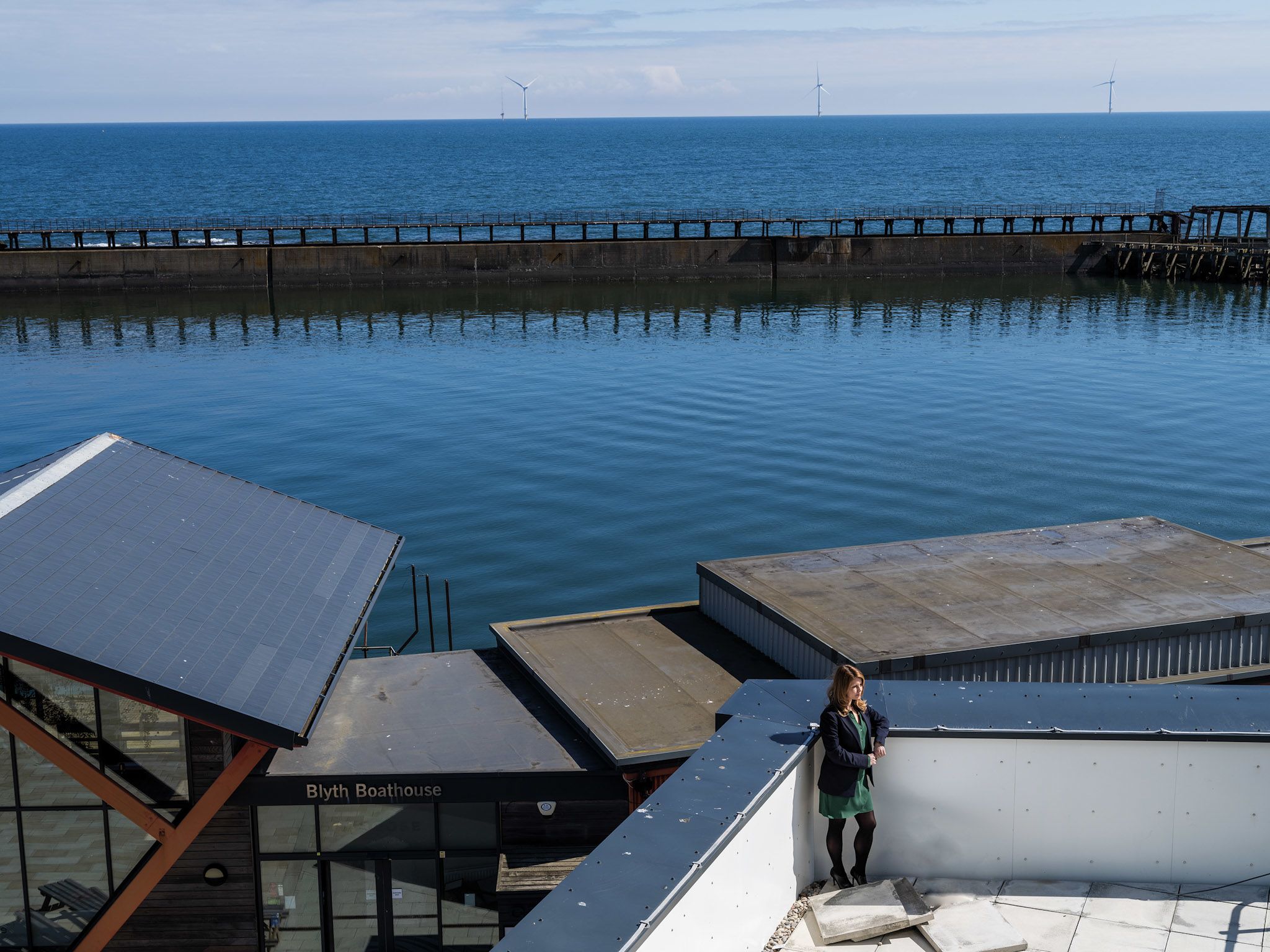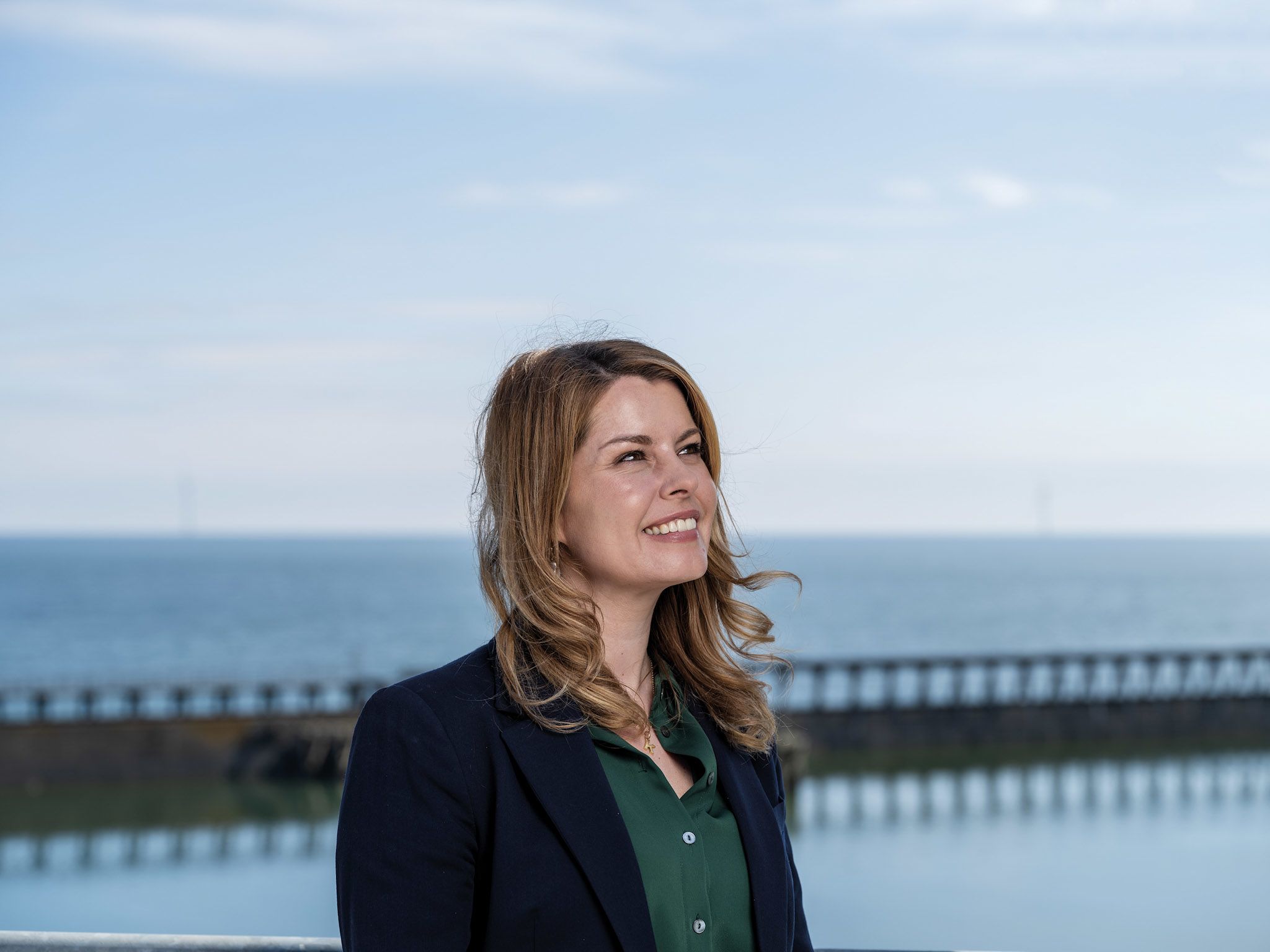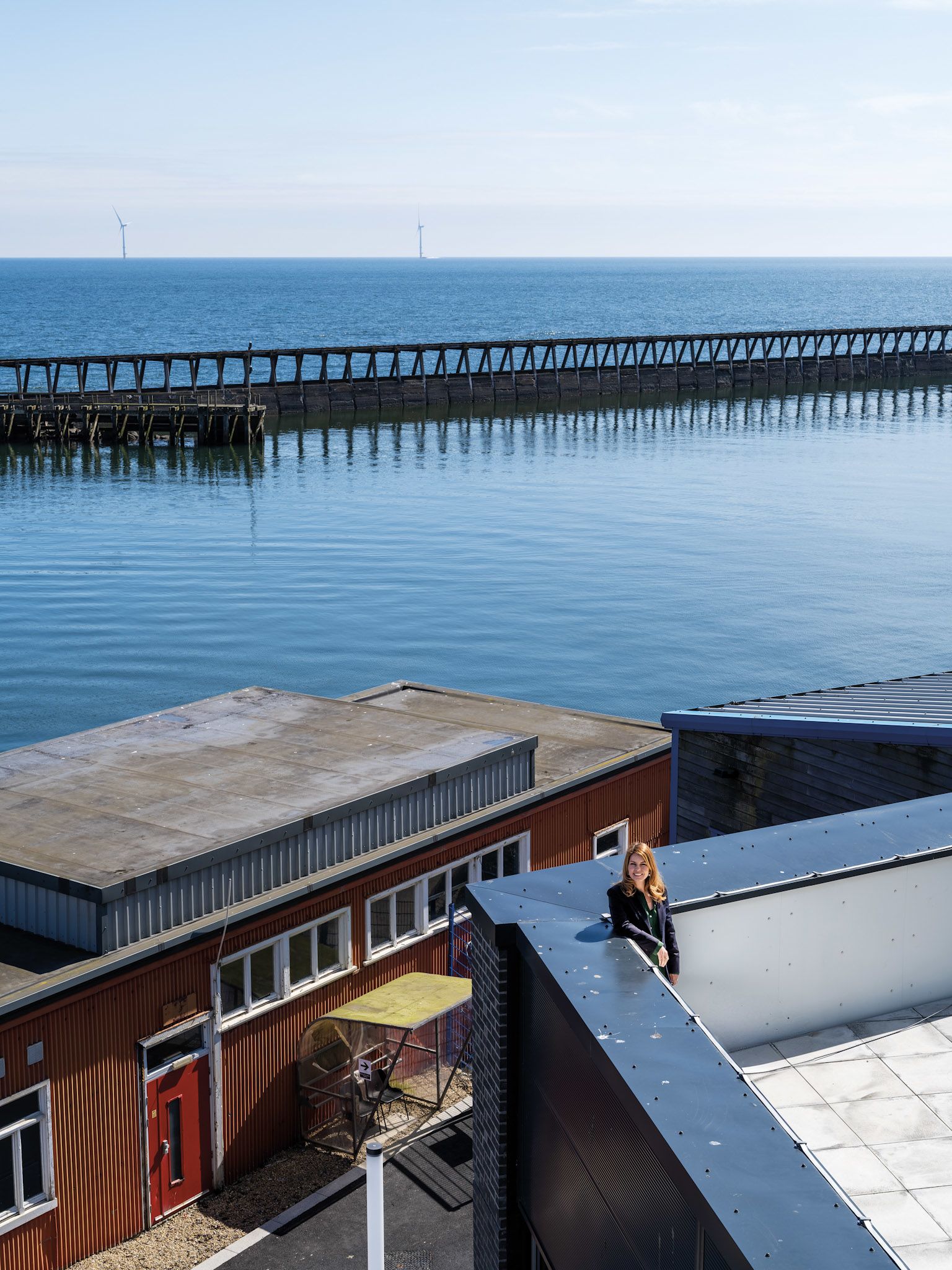Building a politics of respect from the ground up with Kim McGuinness
We sit down with Kim McGuinness, Mayor of the North East, to discuss devolution, the politics of respect, and why building an ‘infrastructure of opportunity’ matters if we’re to help communities succeed.

The North East is marked by forgotten kingdoms, crossed lines of memory and stories that echo across the vast landscape—a land of inheritance, passed down through culture, landscape and community
To experience it is to feel a cold, fresh blow of old stories—those of pain but also those of rebirth. These inheritances run deep into people's sense of identity and community..
For Kim McGuinness, these inheritances are central to her political identity. In an age of globalisation, where the pull of work draws many from the places they call home, McGuinness is not the norm; never one for leaving behind the place she still calls home.
"I love this place so deeply, and it's almost unhealthy how much, but despite that love, I kind of recognise the need for us to understand the challenges and to do something about it, so it's something that makes me incredibly proud.” She explains.


I think the pride that I feel in the fact that the people of the region put their trust in me—I'm very grateful for that—but I also know that there is a mammoth task."
As Mayor of the North East, McGuinness inherited some stark challenges. The story is well told: once one of the great engines of the British Empire. Its coal yards, industrial centres, fuelling a vast economy of large and small businesses – the blast furnaces and darkened pits colouring the faces of workers, shaping communities and generations of families. And then when those industries left, a vast aching hole. In some cases, the pain was sudden; in others, it was slow, but no less intense.
Like the voters who elected her, McGuinness is a product of that history. And yet she is also the product of another inheritance, one forged in the strong sense of community and place that enabled a new generation to find hope in the opportunities provided by new public services and education – the helping hand of a very modern social safety net.
“You know, I grew up here, it made me the person that I am for sure, it gave me a whole
host of opportunities, but for me to have those opportunities there had to be intervention and at that time it was intervention from the last Labour government investing in public services
and schools, investing in programmes that took working-class kids like me and gave me access to the cultural capital and the things that I needed to succeed.”
I met McGuinness in Blyth, at a shiny new college built to connect the local workforce with the growing offshore wind farms being constructed amidst the breaking waves that’ve seen the coal barges and Viking longboats; she has a spring in her step. Fresh from speaking to young people about the opportunities that these new industries might bring.
“It’s a good example of what’s possible — the Energy Central Learning Hub in Blyth. You look out the window, and you can see the wind turbines offshore. This is one of our biggest opportunities for the region,” she says.
Competing narratives are in almost constant conversation in Britain today, between the promise of opportunity and a deep-seated scepticism about the possibility of change. For McGuinness, this is about power and respect. How we wrestle back the power of the state and place it back in the hands of those with “skin in the game”.
It’s a mantra which has won cross-party support. It’s easy to forget that George Osborne was the early champion of regional mayors, and it is now Angela Rayner and others who are pushing for greater devolution.
“I’m a complete and utter true believer when it comes to devolution.” Leaning forward as if to seize these new powers. “This country has been overcentralised forever, and in regions like ours, you can feel that you can see it, you can see the fact that we have not had as much investment as, for example, the South East.”
Yet for McGuinness, it goes beyond economic disparities to the heart of how people feel about politics and their sense of agency.
“People at times feel disenfranchised by a political system where decisions are made so far away from them that they just don’t bear any resemblance to the realities of their life and so devolution and the role of mayors is so incredibly important in fixing that but also in getting the growth that this government seeks in making sure that you know, it matters to people’s day-to-day lives.” She explains. “Handing more power to people to make more decisions over their own future can never be a bad thing.”
In some sense, it’s a simple mantra. Where you see power hoarded and kept away from those in a place, ask why? Why do they have it, and who can better wield it?
The powers that McGuinness would like to see return to the region include greater control over skills (a long-argued-for change and supported by other mayors, including Andy Burnham in Manchester) and the devolution of funding bodies, such as the Arts Council.
“Where I’d like us to go to next is post-16 skills. I’d like to be getting some fiscal devolution powers, things like for example a tourist tax, more control over things like the Arts Council – I think devolve it – more control of, for example, Homes England, so that we can build the houses that we need and build the social houses in the region like this that we really need.”
Perhaps most importantly, McGuinness believes in the need for regions to have some tax-raising powers, enabling them to make choices and shape their economies. This includes ideas such as a tourist tax.
It’s no easy task; the Treasury has long kept a firm grip on taxation, but there is a growing sense amongst mayors that their time has come and the opportunity to rethink how we run and grow the economy is crucial. There is an energy to mayoral politics, free from the stuffy corridors of power, working to reconnect politics with people and places.
It’s this sense of a burden that cuts across so much of what McGuinness says, a feeling that the window for change has opened, an opportunity to wrestle back politics from Westminster and
Whitehall.
“People see and they can feel, and they can touch that community infrastructure that matters”.
McGuinness believes it is this infrastructure, supported through the state and other means, that can help make people feel more connected to the people around them. “It will help people to feel more connected and more respected. It’s fair to say that people can’t be respected from some faraway place”.
McGuinness thinks this is about building a politics that values the voice of those on the ground, who side with those working in communities. It seems McGuinness believes mayors are a central tool for building this new politics of respect.
John Tomaney, UCL’s Pro-Provost for Regional Communities has been working with communities in the North East, especially in the former Durham coalfield. His work with UCL colleagues has emphasised the how the loss of social infrastructure fuels a feeling a being ‘left behind’. It also highlights the determined efforts of local people to retain and develop such infrastructure and its role in fostering cohesive communities.
Tomaney says, “Rebuilding social infrastructure will involve long commitment and hard work, but it is crucial to giving communities hope for the future”.
It’s another leading light of the North East, Fiona Hill, who inspired McGuinness to speak about the “infrastructure of opportunity”. For Hill and McGuinness, this is where a network of culture, economy, and state intersect – helping foster opportunities so that folks can be enabled to stay and thrive in the communities they love.
“I read Fiona’s book, and it’s titled here’s Nothing for You Here because that’s what her dad said
to her, and that is a heart-breaking concept for someone like me who’s from this region, and I think it was probably a heart-breaking concept for her as well.” McGuinness says.
For many, this is an all-too-familiar story: your home region, unable to grow or held back by the economic and political structures of the day, forces you to leave, pack up, and build a life elsewhere, far from the place you want to call home.
It’s something McGuinness puts at the heart of her policy programme: “The infrastructure of opportunity needs to be in place to prevent that attitude, to stop that feeling that to succeed you have to leave, because again, our starting point should always be that you should be able to do it here.” She explains. “And it’s everything. It’s about moving devolution on from being just about the economy and making it about some of the wider social issues and accepting that if we don’t tackle child poverty through interventions like childcare.”
McGuinness seems always drawn back to political influences, to those values and ideas we inherit, through choice or burden. In recent months, we’ve heard a lot about a kind of nostalgia for a working-class life, one framed by industry and rigid dogma.
Yet McGuinness paints a far more complex and human story. One in which families today are,yes, shaped by the past, but also eager to engage in the world as it is. The wind farms and the jobs designing the products and services of tomorrow. The care workers and the plumbers, those who will leave and return, and those who want to stay right where they are.
“That is the infrastructure of opportunity that will deliver for the people of the region and make it so that they can see their aspirations can be fulfilled here.” McGuinness says.
“I think too often we’ve heard politicians talk about raising aspirations. It’s a load of rubbish. There is not a single front door in this region, whether it is in an area of high deprivation or one of the most affluent parts of the suburbs where the kids behind that door don’t have aspiration. They absolutely have it. But they need that infrastructure to be able to fulfil their ambitions. And that’s ultimately what we want to be able to do.”
This is a new inheritance, a new story, one that places an infrastructure of opportunity at its centre. Just as the North East has been shaped by the forces of history, invasion, conquest, and revolution, so it is shaped by the forces of today. In devolution, McGuinness and others are attempting to harness the best of those forces, to forge new stories, not abstractions or theoretical ideals but grounded in the lives of ordinary people.

